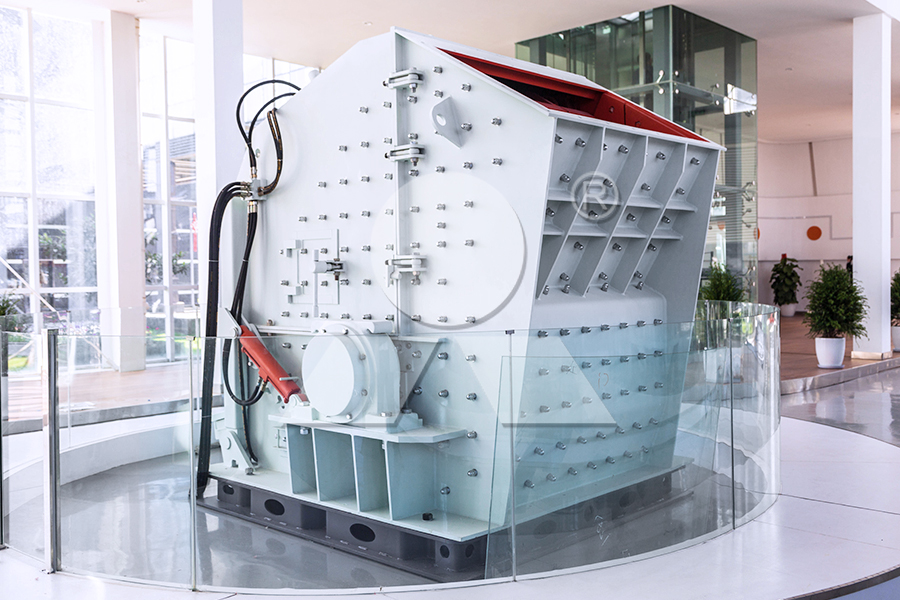

While mobile stone crushers are flexible and efficient, blockages can seriously impact production. Installing an audible and visual alarm system to monitor the conveyor status in real time can effectively prevent blockages and ensure continuous and sta
While mobile stone crushers are flexible and efficient, blockages can seriously impact production. Installing an audible and visual alarm system to monitor the conveyor status in real time can effectively prevent blockages and ensure continuous and stable operation.
The advantages of mobile stone crushers are their flexibility and adaptability, making them particularly suitable for relocation-intensive work sites. However, they also have a drawback: blockages can occur, which can reduce equipment efficiency. To ensure efficiency, it's important to minimize plastic contamination. Here, we'll explain how to prevent blockages.

There are many reasons for the blocking of materials in the production of mobile crushers, but no matter which phenomenon occurs, the machine needs to be stopped for cleaning before it can be started for crushing operations. This process is not only time-consuming and labor-intensive, but will greatly delay the production process and cause the equipment to trip. Generally speaking, if there is too much material in the lower chamber and it cannot be discharged, it will cause the motor to overload and trip. This phenomenon can be divided into two situations. One is that the equipment has a high output and the conveyor has no time to take away the processed materials, resulting in blocking. The other situation is that the downstream equipment trips and the mobile crusher can continue to work. However, no matter which situation is bad for production The impact on line efficiency is inevitable, so to prevent material blockage, here are some preventative measures:
You can use an audible and visual (alarm and light) indicator to directly guide material discharge. This involves installing an electric bell and a flashing alarm light at the mobile crusher's discharge port. These are directly connected to a relay in the electrical cabinet. When the apron conveyor reaches a set current, the relay energizes, the alarm light flashes, and the bell sounds. If downstream equipment trips and the apron conveyor current reaches zero, an audible and visual alarm will sound. Upon receiving the alarm, material discharge will cease, thus preventing material blockage and minimizing the impact on mobile crusher production.
Previous: SMP Crusher
Next: SMP Crusher

While mobile stone crushers are flexible and efficient, blockages can seriously impact production. Installing an audible and visual alarm system to monitor the conveyor status in real time can effectively prevent blockages and ensure continuous and sta
While mobile stone crushers are flexible and efficient, blockages can seriously impact production. Installing an audible and visual alarm system to monitor the conveyor status in real time can effectively prevent blockages and ensure continuous and stable operation.
The advantages of mobile stone crushers are their flexibility and adaptability, making them particularly suitable for relocation-intensive work sites. However, they also have a drawback: blockages can occur, which can reduce equipment efficiency. To ensure efficiency, it's important to minimize plastic contamination. Here, we'll explain how to prevent blockages.

There are many reasons for the blocking of materials in the production of mobile crushers, but no matter which phenomenon occurs, the machine needs to be stopped for cleaning before it can be started for crushing operations. This process is not only time-consuming and labor-intensive, but will greatly delay the production process and cause the equipment to trip. Generally speaking, if there is too much material in the lower chamber and it cannot be discharged, it will cause the motor to overload and trip. This phenomenon can be divided into two situations. One is that the equipment has a high output and the conveyor has no time to take away the processed materials, resulting in blocking. The other situation is that the downstream equipment trips and the mobile crusher can continue to work. However, no matter which situation is bad for production The impact on line efficiency is inevitable, so to prevent material blockage, here are some preventative measures:
You can use an audible and visual (alarm and light) indicator to directly guide material discharge. This involves installing an electric bell and a flashing alarm light at the mobile crusher's discharge port. These are directly connected to a relay in the electrical cabinet. When the apron conveyor reaches a set current, the relay energizes, the alarm light flashes, and the bell sounds. If downstream equipment trips and the apron conveyor current reaches zero, an audible and visual alarm will sound. Upon receiving the alarm, material discharge will cease, thus preventing material blockage and minimizing the impact on mobile crusher production.
Previous: SMP Crusher
Next: SMP Crusher
 Stone production line equipment price
Stone production line equipment price What are the equipment for producing stone production line
What are the equipment for producing stone production line Shibangs 500-600 tph limestone crushing and sand making production line: a model of high efficiency and energy saving
Shibangs 500-600 tph limestone crushing and sand making production line: a model of high efficiency and energy saving Large stone crushing equipment
Large stone crushing equipment What are the effects of high temperature environment when the crusher is working
What are the effects of high temperature environment when the crusher is working Stone production line equipment price
Stone production line equipment price What are the equipment for producing stone production line
What are the equipment for producing stone production line Shibangs 500-600 tph limestone crushing and sand making production line: a model of high efficiency and energy saving
Shibangs 500-600 tph limestone crushing and sand making production line: a model of high efficiency and energy saving Large stone crushing equipment
Large stone crushing equipment What are the effects of high temperature environment when the crusher is working
What are the effects of high temperature environment when the crusher is working